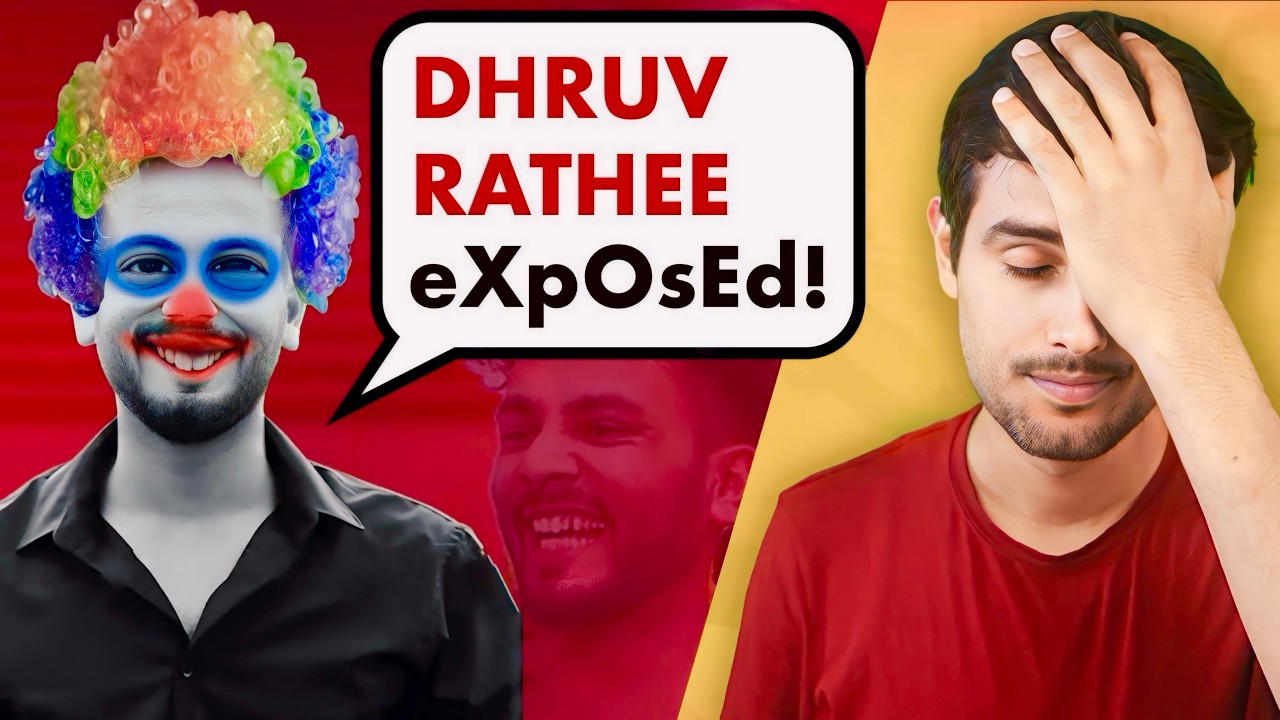
In a recent video, Dhruv Rathee addressed the numerous baseless accusations made against him by right-wing YouTuber Elvish Yadav. The video, which has sparked significant online debate, systematically dismantles Yadav’s claims and highlights the absurdity of some of the conspiracy theories circulating about Rathee and others in his circle.
Rathee begins by mocking Yadav’s incessant demands for a counter-response, pointing out the lack of substance in Yadav’s arguments. He humorously notes the intellectual laziness in Yadav’s approach, particularly highlighting a mistake where Yadav failed to differentiate between two individuals with similar names, Aadil Aman and Adil Aman. This sets the tone for Rathee’s methodical debunking of Yadav’s claims.
Rathee explains that the Facebook group, “Dhruv Rathee Squad,” which Yadav referred to, was created in 2017 and not in 2020 as alleged. He clarifies that the group was managed by a few admins chosen based on their activity and engagement, and not due to any personal connections. When one admin, Aadil Aman, made extremist comments, Rathee promptly removed him from the position, emphasizing his consistent stance against any form of extremism. The group was eventually shut down around 2020-21 to prevent further such issues.
The narrative then shifts to the frequent and unfounded labeling of critics as “anti-national” by BJP supporters, a tactic that Rathee claims Yadav has adopted. He cites numerous instances where individuals critical of the BJP or its policies are branded as anti-national, drawing parallels with how he himself has been targeted.
Rathee further dissects the misinformation spread about his supposed connections with controversial figures like Harsh Mander and George Soros. He provides a detailed account of George Soros’ philanthropic activities, noting Soros’ contributions to various sectors in India, including education, public services, and small business financing. Rathee highlights that Soros’ Open Society Foundation, despite being a target of conspiracy theories, has positively impacted thousands of small businesses in India. He also points out the irony that the Indian government itself contributes to the UN Democracy Fund, which supports many of Soros’ initiatives globally.
Addressing the specific claim about Harsh Mander, Rathee describes Mander’s distinguished career as a former IAS officer, author, and human rights advocate. He details Mander’s extensive work in various fields, including his involvement in drafting key legislations like the Right to Information and Right to Education. Rathee emphasizes that he has never met or communicated with Mander, and only researched him after Yadav’s baseless allegations.
Rathee then critiques the broader narrative propagated by right-wing influencers, accusing them of intellectual laziness and a lack of integrity. He compares Yadav’s speculative and conspiratorial approach to serious journalistic investigation, pointing out numerous factual inaccuracies and misrepresentations in Yadav’s videos.
He also addresses the misinformation about his video production timeline, showing that his videos on contentious issues like CAA and NRC were produced independently of any external influence, including tweets from individuals like Harsh Mander.
Throughout the video, Rathee employs a mix of humor and factual rebuttals to undermine Yadav’s credibility. He challenges Yadav and others like him to hold the BJP to the same standards they impose on critics. Rathee’s video serves as a broader critique of the right-wing ecosystem’s approach to dissent and intellectual debate in India.
Rathee systematically addresses various claims made against him, providing counterarguments and evidence to refute them. Here’s a breakdown of the key points and arguments he makes:
1. Counter to Elvish Yadav’s Claims:
– Rathee debunks the claim that he created a Facebook group in 2020, clarifying it was created in 2017 and shut down in 2020-21 due to misuse by some members.
– He refutes the accusation of being friends with Aadil Aman, explaining how he managed the group and removed Aadil when he posted extremist comments.
2. Critique of Right-Wing YouTubers:
– Rathee criticizes right-wing YouTubers for spreading misinformation and using abusive language. He specifically targets Elvish Yadav for making baseless accusations and linking him to anti-national activities without proof.
3. George Soros and BJP Connections:
– Rathee addresses the conspiracy theories surrounding George Soros, highlighting Soros’ philanthropic activities and investments in India, which indirectly connect him to BJP leaders and initiatives.
– He emphasizes that Soros has criticized various global leaders, including those in China and Pakistan, contradicting the narrative that he is anti-India.
4. Misinformation About Harsh Mander:
– Rathee clarifies that he has never met or spoken to Harsh Mander and only learned about him from Elvish’s video.
– He provides a detailed background on Harsh Mander’s career and contributions, debunking the claim that Mander is anti-national.
5. Elvish’s Flawed Logic and Inaccuracies:
– Rathee points out the inaccuracies in Elvish’s claims, such as the incorrect timelines of tweets and videos and the false connection between his content and Mander’s tweets.
6. BJP and Extremist Associations:
– Rathee lists instances where BJP leaders and the Prime Minister were associated with individuals accused of criminal activities, emphasizing the hypocrisy in the accusations against him.
7. Advice for Aspiring YouTubers:
– Rathee advises against building a YouTube career based on controversy, suggesting that genuine value to the audience is necessary for long-term success.
Overall, Rathee’s response is an attempt to clear his name from the false accusations, criticize the tactics used by his detractors, and highlight the double standards in the political discourse propagated by certain influencers.
